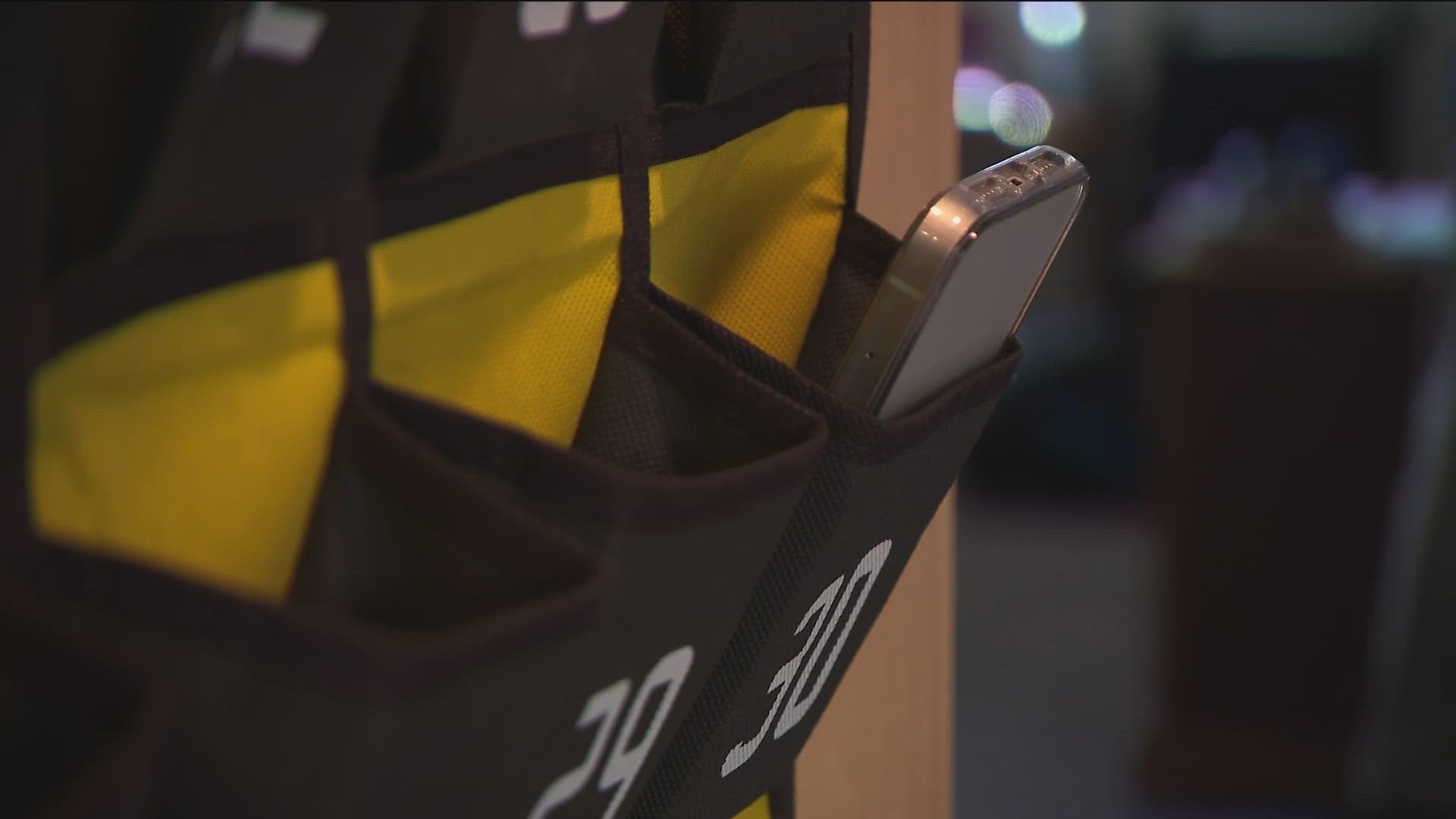MERIDIAN, Idaho — In the Fall, West Ada students entered a new era after a district-wide cellphone ban.
The ban states cellphones need to be powered off and in a "designated storage area," which means in your backpack or the classroom vault. West Ada previously told KTVB the ban is intended to limit distractions and increase social interactions.
For some schools in the district, like Mountain View High School, they've had a similar school-wide ban for cellphones for the last couple years.
But for others, like Meridian High School (MHS), it's a first for them and some said they were hesitant at first.
"My initial thought was, why couldn't this wait one more year until after I graduate?" Alayna Cottrell, a MHS senior and the vice president of ASB, told KVB.
MHS teachers prepped for pushback from students.
"Would it work? Am I going to have to be like a policeman with the phones? What if a kid says, no?" Chad Bloxham, a teacher at MHS and the student council advisor, said.
But he said it hadn't been a problem.
"The kids know to come in and put their phone there," Bloxham said. "I've had zero refusal to turn your phone in."
Students call it a "night and day difference"
"Students are talking to people that maybe they wouldn't before, and like, forming friendships," Karah Vink, a MHS senior and co-president of ASB, said. "I think that's really cool."
Vink added it helps bring a "sense of community back."
Instead of grabbing their phones during downtime, they're talking to their peers.
"I'm asking about soccer games, they are asking about my softball and I'm like, this is new. this is different," Athena Little, a MHS senior and co-president of ASB, said.
"I'll see five people and, like, give them high fives and be like, hey, how's your day going?" Cottrell said.
Recovering from COVID-19
"When I started in '07, "I'd say probably one out of every five kids had a cell phone," Bloxham said. "Then they started to grow and flip and do all those things."
Bloxham has been a teacher at MHS for 18 years, he said. He's seen the evolution of cellphones, but was also a teacher who taught through Covid.
Students feel the differences at school from COVID-19, too.
"Covid kind of was a weird time for us where we didn't have as much social interaction, so phones became a way to get that social interaction," Cottrell said.
Cell phones became a comfort item, she said.
"Everyone is trying all these things to get back to like the old ways, but nothing was really like working," Vink added. "I feel like this has been like the first year of school that has truly felt like school."
The social interactions and noisy classrooms are starting to return.
"Back in '07, it was, you know, a lot of interaction, noisy classrooms," Bloxham said. "When we came back from covid, you didn't have a lot of kids saying anything to each other, so you weren't having to tell kids to quiet down... we were having to tell kids to speak up and interact."
Today, teachers are no longer fighting for students' attention, he said.
"Teachers would ask questions and we all just sit in silence, and a lot of kids would be on their phones," Cottrell said. "But now we ask questions and like there's actual discussions happening in the classrooms, rather than just the awkward silence."
Twin Falls also said it's going well
Twin Falls School District also began their school year with a district-wide. In addition to cellphones needing to be away during class time, students aren't allowed to have them on breaks either.
Leading up to the first day of school there was some anxiousness, and push back from students, according to the district's Superintendent, Brady Dickinson told KTVB.
"The kids have really settled in and just walking through the buildings now, it's kind of remarkable to see more conversation happening between kids," he said. "When you go into the lunchroom, you're seeing kids converse more. And I think kids, although they probably all don't love the new policy, I think even they would admit that it's better not constantly, you know, being tied to social media and texting and everything else that goes along with it."

